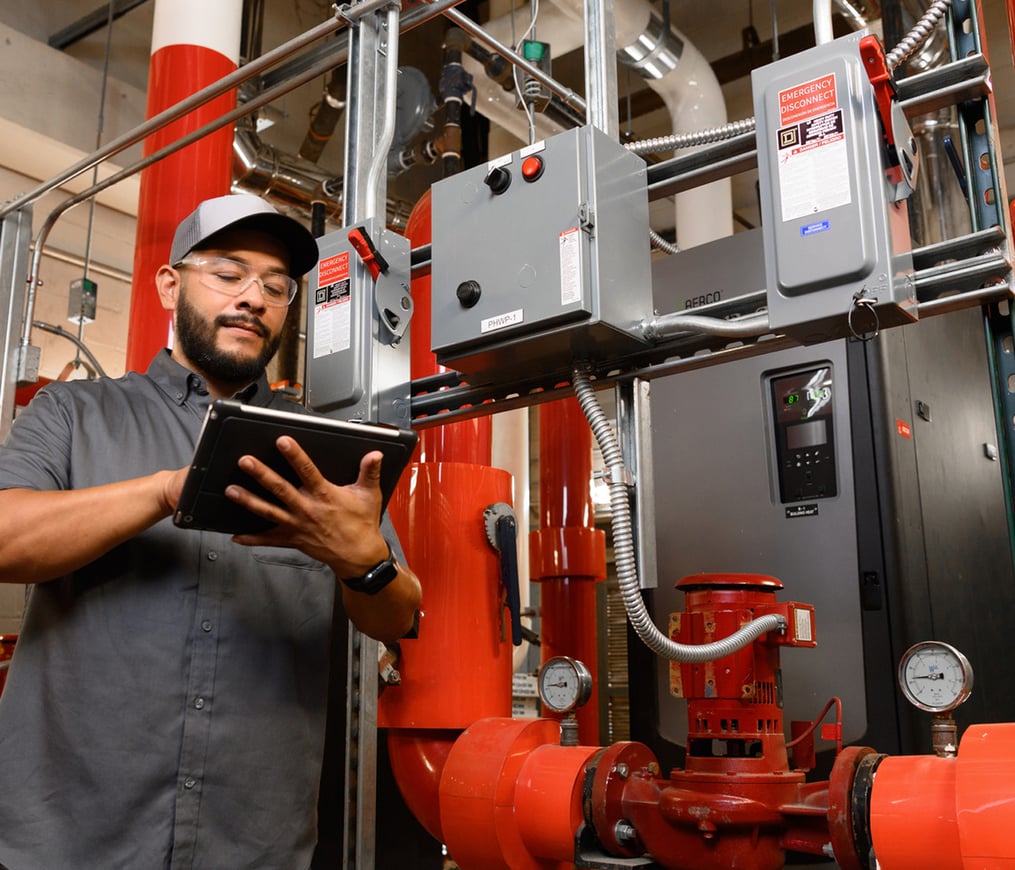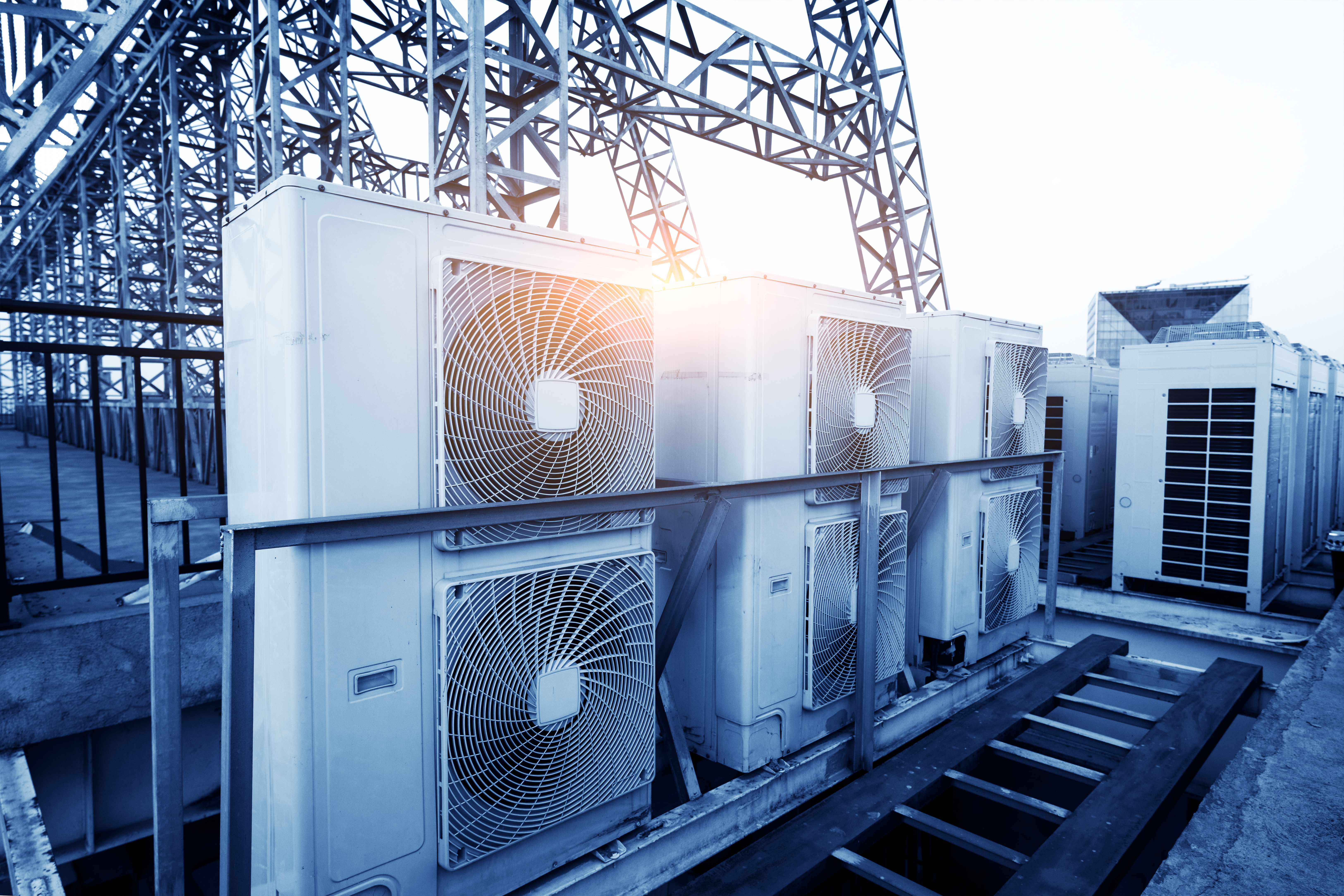Commercial HVAC Contractor Offering Professional Cooling And Heating Solutions
Commercial HVAC Contractor Offering Professional Cooling And Heating Solutions
Blog Article
A Comprehensive Consider Cooling And Heating Solutions and Their Effect On Energy Effectiveness and Price Financial Savings
With technological innovations like smart thermostats and high-efficiency components, the possibility for maximizing system efficiency is large. As we check out the complex connection between A/c systems and functional expenses, including the change towards environmentally pleasant choices, the question emerges: exactly how can these methods be successfully carried out to maximize both ecological and financial benefits?

Relevance of HVAC Systems
cooling and heating systems are an essential component of contemporary buildings, playing a crucial function in preserving comfortable and healthy indoor atmospheres. These systems, including heating, air, and ventilation conditioning, are crucial for regulating temperature level, humidity, and air top quality, therefore guaranteeing the health of residents. Effective heating and cooling systems contribute dramatically to creating an optimum interior environment, which is important for both domestic and industrial areas.
In industrial structures, a/c systems are indispensable to offering a effective and safe atmosphere. By controlling interior environment problems, these systems aid protect against the development of mold and mildew and the spread of airborne impurities, hence protecting the health of customers and staff members. In addition, in property setups, a/c systems boost living conditions by providing constant thermal comfort and boosting interior air top quality, which is vital for overall wellness.
Additionally, the style and maintenance of a/c systems have a direct influence on power intake and functional expenses. Effectively developed and preserved systems can substantially decrease power use, resulting in lowered utility bills and a smaller sized carbon footprint. The efficiency of these systems hence plays a vital function in advertising sustainability and power conservation within structures, highlighting their importance in the modern-day building landscape.
Developments in Cooling And Heating Technology
Technology in a/c technology is transforming the way buildings manage indoor environments, introducing a new age of effectiveness and control. Current developments have concentrated on maximizing power consumption while improving user comfort. One noteworthy growth is the integration of wise thermostats, which use synthetic intelligence to find out tenancy patterns and adjust temperatures accordingly, minimizing unnecessary energy use.
Variable Refrigerant Flow (VRF) systems represent another substantial leap ahead. These systems enable accurate temperature level control in different zones of a building, boosting comfort and decreasing power waste. VRF innovation is particularly helpful for huge commercial areas, using adaptability and scalability.
Additionally, the introduction of Internet of Points (IoT) devices has transformed a/c systems into interconnected networks efficient in real-time information collection and analysis. This connection makes it possible for anticipating upkeep, making certain systems run at peak efficiency and lessening unforeseen downtime.
Moreover, developments in products and design, such as making use of high-efficiency coils and compressors, have actually improved total system performance - Heating Contractor. The fostering of eco-friendly cooling agents likewise emphasizes the sector's commitment to sustainability
These technical developments are essential in decreasing operational expenses and environmental influence, establishing new criteria for developing climate administration.
HVAC Maintenance and Effectiveness
Ensuring ideal efficiency of cooling and heating systems expands beyond technological innovations; it additionally rests on effective maintenance methods. Normal upkeep is important for maintaining effectiveness, reducing energy consumption, and prolonging the lifetime of heating and cooling systems. The main goal is to ensure that all elements operate at their peak capacity, consequently lessening power waste and keeping regular interior comfort levels.
Regular maintenance jobs, such as cleansing or changing air filters, checking refrigerant degrees, and inspecting ductwork for leakages, are important for stopping unnecessary strain on the system. Blocked or dirty filters can block air movement, creating the system to function more difficult and consume more power. Similarly, insufficient cooling agent levels can lower cooling down performance, resulting in higher functional expenses.
Furthermore, routine assessments by qualified experts can determine potential concerns before they escalate right into expensive fixings or system failures. These inspections frequently include inspecting electrical links, adjusting thermostats, and ensuring the overall integrity of the heating and cooling system. By dealing with small issues early, businesses and home owners can prevent unforeseen failures and improve power performance.
Cost-efficient A/c Solutions
For those seeking to get the most out of their ventilation, air, and home heating conditioning systems without damaging the financial institution, checking out cost-effective HVAC options can make a significant difference. One instant action is to purchase programmable thermostats, which enable users to establish specific temperature levels for various times of the day, maximizing energy usage and decreasing unnecessary consumption. By automating temperature level adjustments, home owners can attain substantial savings on energy expenses.
Regular upkeep is an additional crucial part of affordable a/c monitoring. Ensuring that filters are cleaned or replaced frequently, ductwork is sealed, and systems are serviced by specialists can stop expensive repair work and enhance system durability. Precautionary maintenance not only maintains system performance yet additionally helps in preventing unforeseen breakdowns that can lead to expensive emergency situation repair work.
In addition, retrofitting existing systems with energy-efficient parts, such as variable speed electric motors or high-efficiency compressors, can be click site a prudent investment. These upgrades improve functional effectiveness, minimize energy use, and can often be executed at a portion of the expense of a complete system replacement.
Environmental Impact Reduction
Reducing the ecological influence of Cooling and heating systems is critical in today's quest of lasting living. HVAC systems are substantial contributors to energy usage, accounting for virtually 40% of energy use in business structures.
Technological developments in a/c style and operation, including the integration of smart thermostats and energy-efficient warmth pumps, are crucial in lowering carbon footprints. These developments permit maximized power usage, decreasing wastefulness and boosting general system performance. Furthermore, embracing routine maintenance methods makes certain HVAC systems run at peak performance, further stopping unneeded energy usage.
Moreover, making use of ecologically friendly cooling agents is essential, as conventional cooling agents, like CFCs and HCFCs, have actually been eliminated because of their ozone-depleting buildings. Modern options, such as hydrofluoroolefins (HFOs), deal decreased environmental risks, straightening with worldwide ecological methods. By embracing these lasting techniques, HVAC solutions can play a transformative function in lowering environmental influences, promoting power effectiveness, and promoting a more lasting future.
Conclusion

Additionally, the layout and maintenance of Cooling and heating systems have a straight impact on energy usage and functional costs. Regular maintenance is vital for maintaining efficiency, decreasing energy usage, and expanding the life span of Heating and cooling systems. A/c systems are substantial contributors to energy usage, accounting for almost 40% of energy usage in commercial buildings. Furthermore, embracing routine upkeep techniques makes certain HVAC systems run at peak effectiveness, additional cutting unneeded energy consumption.
The transition to eco friendly Heating and cooling systems better minimizes operational prices and promotes sustainability. (Heating Contractor)
Report this page